
Mormonism is the theology and religious tradition of the Latter Day Saint movement of Restorationist Christianity started by Joseph Smith in Western New York in the 1820s and 1830s. As a label, Mormonism has been applied to various aspects of the Latter Day Saint movement, although there has been a recent push from the Church of Jesus Christ of Latter-day Saints to distance themselves from this label. A historian, Sydney E. Ahlstrom, wrote in 1982 that, depending on the context, the term Mormonism could refer to “a sect, a mystery cult, a new religion, a church, a people, a nation, or an American subculture; indeed, at different times and places it is all of these."
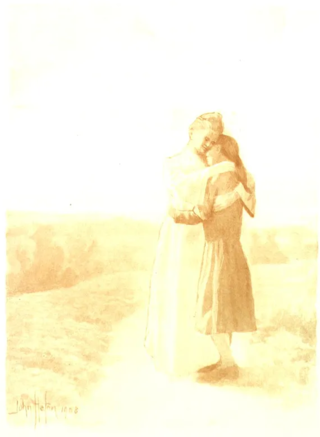
In the Latter Day Saint movement, the Heavenly Mother, also known as the Mother in Heaven, is the mother of human spirits and the wife of God the Father. Collectively Heavenly Mother and Father are called Heavenly Parents. Those who accept the Mother in Heaven doctrine trace its origins to Joseph Smith, founder of the Latter Day Saint movement. The doctrine became more widely known after Smith's death in 1844.
Jerald Dee Tanner and Sandra McGee Tanner are American writers and researchers who publish archival and evidential materials about the history of the Church of Jesus Christ of Latter-day Saints. The Tanners founded the Utah Lighthouse Ministry (UTLM), whose stated mission is "to document problems with the claims of Mormonism and compare LDS doctrines with Christianity". As of 2022 Sandra Tanner continues to operate the ministry after Jerald's death in 2006.
In orthodox Mormonism, the term God generally refers to the biblical God the Father, whom Latter Day Saints also refer to as Elohim or Heavenly Father, and the term Godhead refers to a council of three distinct divine persons consisting of God the Father, Jesus Christ, and the Holy Ghost. However, in Latter Day Saint theology the term God may also refer to, in some contexts, the Godhead as a whole or to each member individually. Latter Day Saints believe that the Father, Son and Holy Ghost are three distinct beings, and that the Father and Jesus have perfected, glorified, physical bodies, while the Holy Ghost is a spirit without a physical body. Latter Day Saints also believe that there are other gods and goddesses outside the Godhead, such as a Heavenly Mother—who is the wife of God the Father—and that faithful Latter-day Saints may attain godhood in the afterlife. The term Heavenly Parents is used to refer collectively to the divine partnership of Heavenly Father and a Heavenly Mother. Joseph Smith taught that God was once a man on another planet before being exalted to Godhood.

Ellen Foster is a 1987 novel by American novelist Kaye Gibbons. It was a selection of Oprah's Book Club in October 1997.
Ex-Mormon or post-Mormon refers to a disaffiliate of the Church of Jesus Christ of Latter-day Saints or any of its schismatic breakoffs, collectively called "Mormonism". Ex-Mormons—sometimes referred to as exmo or postmo—may neither believe in nor affiliate with the LDS Church. In contrast, Jack Mormons may believe but do not affiliate; and cultural Mormons may or may not affiliate but do not believe in certain doctrines or practices of the LDS Church. The distinction is important to a large segment of ex-Mormons, many of whom consider their decision to leave as morally compelling and socially risky. According to 2014 Pew data, around 1/3 of adults raised LDS no longer adhere to the faith and in 2008 only 25% of LDS young adults were actively involved. Many ex-Mormons experience troubles with family members who still follow Mormon teachings. Aggregations of ex-Mormons may comprise a social movement.
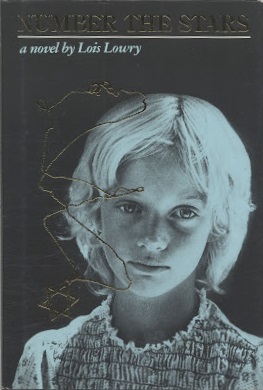
Number the Stars is a work of historical fiction by the American author Lois Lowry about the escape of a family of Jews from Copenhagen, Denmark, during World War II.
Vardis Alvero Fisher was an American writer from Idaho who wrote popular historical novels of the Old West. After studying at the University of Utah and the University of Chicago, Fisher taught English at the University of Utah and then at the Washington Square College of New York University until 1931. He worked with the Federal Writers' Project to write the Works Project Administration The Idaho Guide, which was published in 1937. In 1939, Fisher wrote Children of God, a historical novel concerning the early Church of Jesus Christ of Latter-day Saints. The novel won the Harper Prize. In 1940, Fisher relocated to Hagerman, Idaho, and spent the next twenty years writing the 12-volume Testament of Man (1943–1960) series of novels, depicting the history of humans from cavemen to civilization. Fisher's novel Mountain Man (1965) was adapted in the film Jeremiah Johnson (1972).
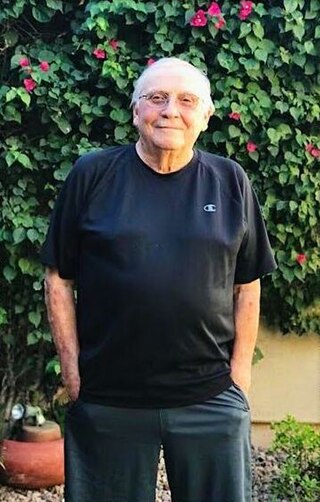
John Edward "Ed" Decker is an American counterculture apologist, and evangelist known for his expert studies, books, and public presentations, of the negative aspects of the Church of Jesus Christ of Latter-day Saints and Freemasonry. He is a former member of the LDS Church, and prominent early member of a Christian group for ex-Mormons called Saints Alive in Jesus. His most well-known book is The God Makers: A Shocking Expose of What the Mormon Church Really Believes, co-authored by Dave Hunt.
Latter Day Saints and Mormons have been portrayed in popular media many times. These portrayals often emphasize controversial subjects from the history and beliefs of the Church of Jesus Christ of Latter-day Saints and other branches of the Latter Day Saint movement.
The God Makers is a book and film highlighting the inner workings and perceived negative aspects of the Church of Jesus Christ of Latter-day Saints. Ed Decker and Dave Hunt co-authored the book and film.
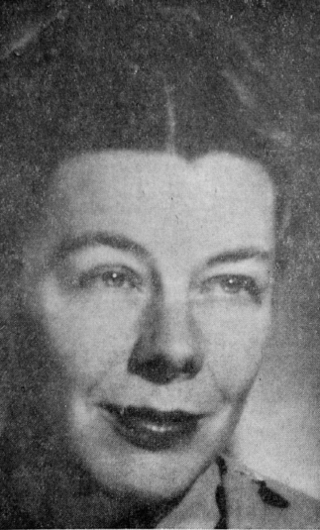
Virginia Louise Sorensen, also credited as Virginia Sorenson, was an American regionalist writer. Her role in Utah and Mormon literature places her within the "lost generation" of Mormon writers. She was awarded the 1957 Newbery Medal for her children's novel, Miracles on Maple Hill.
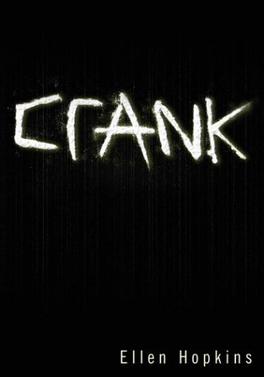
Crank is a novel by Ellen Hopkins published in 2004. It is based loosely on the real life addictions of the author's daughter to crystal meth. The book is required reading in "many high schools, as well as many drug and drug court programs." However, the book has been banned in many locations due to complaints that the book's depictions of drug use, adult language, and sexual themes are inappropriate for some readers.

Ellen Louise Hopkins is a novelist who has published several New York Times bestselling novels that are popular among the teenage and young adult audience.

Impulse is a 2007 American young adult novel in verse written by Ellen Hopkins. The novel digs into the lives of three troubled teenagers as they try to work their way out of the hospital by getting through what put them there.
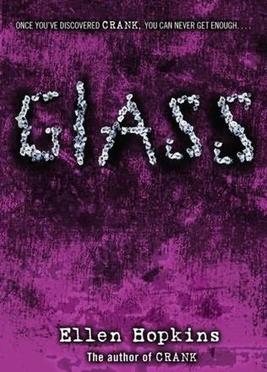
Glass is the second novel in the verse novel series Crank by Ellen Hopkins, published in hardcover in August 2007 and in softcover on April 7, 2009. The third book of the series, Fallout, was published in 2010. Like the previous novel in the series, Glass has been the subject of controversy, with the book being partially responsible for a public appearance by Hopkins getting cancelled due to parental complaints.
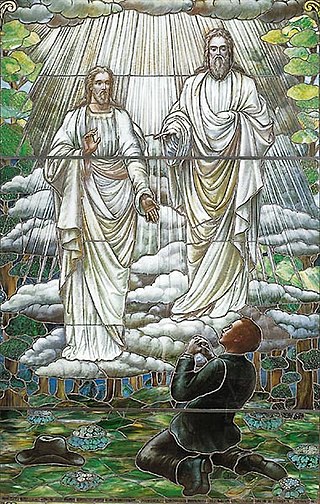
Mormonism and Nicene Christianity have a complex theological, historical, and sociological relationship. Mormons express their doctrines using biblical terminology. They have similar views about the nature of Jesus Christ's atonement, bodily resurrection, and Second Coming as mainstream Christians. Nevertheless, most Mormons do not accept the doctrine of the Trinity as codified in the Nicene Creed of 325 and the Nicene-Constantinopolitan Creed of 381. Although Mormons consider the Protestant Bible to be holy scripture, they do not believe in biblical inerrancy. They have also adopted additional scriptures that they believe to have been divinely revealed to Joseph Smith, including the Book of Mormon, the Doctrine and Covenants, and the Pearl of Great Price. Mormons practice baptism and celebrate the sacrament of the Lord's Supper, but they also participate in other religious rituals. Mormons self-identify as Christians.

Tricks is a young adult verse novel by Ellen Hopkins, released in August 2009. It tells the converging narratives of five troubled teenage protagonists. It is noted for its gritty realism in addressing issues of sexual activity and drug use for a young adult readership. It has been banned in some places due to its references to drug use, sexual themes and language.
Islam and Mormonism have been compared to one another since the earliest origins of the latter in the nineteenth century, sometimes by detractors of one or both religions, but also at least once by Joseph Smith, founder of the Latter Day Saint movement, himself. Smith was also frequently referred to as "the Modern Muhammad" by several publications of the era, notably in the New York Herald, shortly after his assassination in June 1844. This epithet repeated a comparison that had been made from Smith's earliest career, one that was not intended at the time to be complimentary.
Jana Kathryn Riess is an American professor, writer, and editor. Riess' writings have focused on American religions, especially the Church of Jesus Christ of Latter-day Saints of which she is a member, and other new religious movements.












